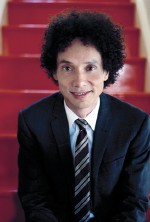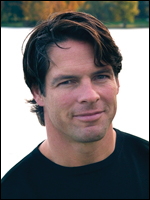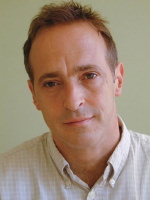Authors From HACHETTE AUDIO
Kareem Abdul-Jabbar
![]()
Known for his larger-than-life accomplishments, Kareem Abdul-Jabbar--sports legend, cultural ambassador, and author--wants to address another important audience: young readers. His memoir, BECOMING KAREEM: GROWING UP ON AND OFF THE COURT, chronicles important lessons that he absorbed from a variety of teachers who guided his path, ultimately allowing him, as he writes, to “walk that path on my own, confident in my own choices.”
Madeleine Albright
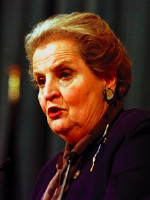
In her new book, THE MIGHTY & THE ALMIGHTY, Madeleine Albright, former Secretary of State and American Ambassador to the United Nations, reflects on the convergence of politics, religion, and morality in the modern world. At a time when differing religious concepts clash throughout the world, she believes we can transform religion into a force for global stability. It’s an important and serious book written by an important and serious woman who knows how to leaven the analysis with humor. Early in the book, she quips that as a woman of Jewish heritage who was raised Catholic and married Episcopalian and who has worked frequently in the Muslim world, she may be uniquely qualified to write about religion in world politics.
Kate Atkinson
Fans of the idiosyncratic private investigator Jackson Brodie should thank their lucky stars for Kate Atkinson, author of the Brodie novels. Not only did she create the character--world-weary yet hopeful, deeply moral, occasionally law-breaking, and, well, marvelous--she recommended actor Jason Isaacs for the role. Now he simply is Jackson Brodie on audio and in film, and she couldn’t be more pleased. Admittedly, they did have a “little friendly tussle” over Brodie’s accent, which in Isaac’s rendition is more generically Northern England than what the Yorkshire-born author hears when she writes. “But he has to do lots of other characters as well, and he does do them excellently. It’s definitely an art.” She acquiesced about Brodie’s accent. “Now,” she laughs, “he refuses to give up the character come hell or high water. He regards it as his. I regard it as mine. But he does really regard it as his.” She smiles, for it has worked out just as she intended.
David Baldacci
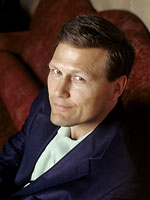
In speaking with author David Baldacci about audiobooks, you soon realize he’s a “stone cold” optimist. “Some authors think that audiobooks detract from book readership,” he says. “I believe that audios add whole blocks of fans. I think the industry has to adapt, and however we can get new readers introduced to the joy of reading, we should do it.” Baldacci says that audios in all forms (cassettes, CDs, MP3-CDs, and downloads) account for about one-eighth of his total sales. “So if one of my books sells 700,000 copies in hardcover, nearly a hundred thousand more will be audiobooks.”
Dave Barry
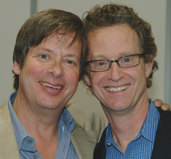
Dave Barry says he was ecstatic when he heard that Jim Dale had agreed to narrate the audio of PETER AND THE STARCATCHERS, the prequel to Peter Pan, which Barry co-authored.
Alice Blanchard
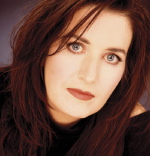
Among her many awards, Alice Blanchard won the Katherine Anne Porter Prize for Fiction for her book of stories, THE STUNTMAN’S DAUGHTER. But in making the transition from stories to novels, this Los Angeles resident reveals that her stories always tended to be long, so people often commented that she should write a novel.
Kate Braestrup
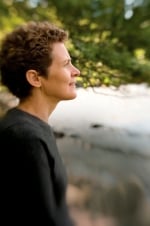
Ten years ago, Kate Braestrup’s husband, Drew, died in a car accident on his way to work as a Maine State Trooper. In the years that followed, Braestrup decided to follow Drew’s dream of entering the ministry. She is now a chaplain for the Maine Warden Service. HERE IF YOU NEED ME is her memoir about those experiences.
Veronica Chambers
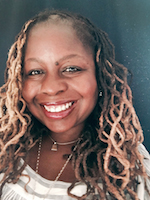
“As a writer, you’re always pitching--trying to convince others to get on board with your ideas,” says author Veronica Chambers. So when friend and editor Elisabeth Dyssegaard suggested Chambers create an anthology of essays on Michelle Obama, she was delighted. “It was really wonderful to have someone say, ‘I know you’re interested in this, and I know you’d do a great job with it.’” Although it was late in 2015 and Chambers knew the “crazy” math of publishing a book in about a year, she still felt a sense of excitement.
Stephen Colbert
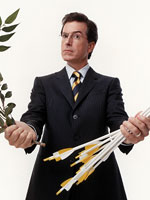
It’s impossible to get Stephen Colbert to talk much about audiobooks. He wants to talk about himself instead. This would be in horrid taste if Stephen Colbert were himself, but he’s not. Or is he?
Michael Connelly
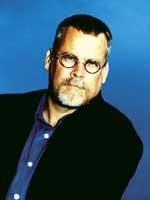
These days, Michael Connelly, creator of Harry Bosch, listens to more books than he reads—but they’re "never, never" his own.
Ted Dekker
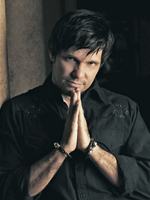
When listeners begin a new Ted Dekker novel, they should expect the unexpected. The New York Times bestselling author is one of the most imaginative and bold writers in the thriller and fantasy genres. How does he do it? Simple--he listens to the voices in his head to make his novels come to life.
Nelson DeMille
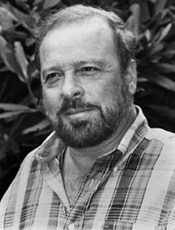
Nelson DeMille is an audiobook fan. He participated in the APA’s Audie Awards ceremony in Los Angeles last year and enjoys listening to unabridged fiction when he drives. People don’t have time to do everything they want or read all the books that interest them. “Audiobooks make you feel more productive,” says DeMille. Whether it’s self-help or fiction, he says, “Audio sinks in while you’re doing other tasks.”
Roger Ebert
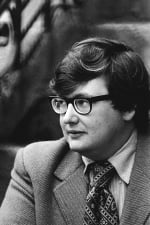
“I’ve been a lifelong reader,” says Roger Ebert in his blog (blogs.suntimes.com/ ebert/2011/08/my_new_voice_belongs_to.html). “My love for physical books is old and deep. I also love audiobooks and have listened to probably 300 of them. Sometimes they stay with me better than the printed ones.”
Barbara Ehrenreich
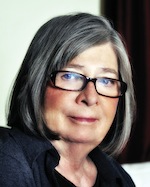
In LIVING WITH A WILD GOD, her memoir about a troubled childhood studded with strange, mystical experiences, Barbara Ehrenreich writes that she often propped books on sinks so she could continue reading while she brushed her teeth or did the dishes. She seems the kind of consumer of literature who might naturally have progressed to audiobooks. But that’s not the case.
“I don’t listen, but I have to start doing it because the radio is too frustrating,” she says. She hasn’t even listened to--or reread--her other works. Five of her 20 provocative and socially conscious books have been recorded, including her 2001 bestseller, NICKEL AND DIMED: On (Not) Getting By in America. “I guess when I’ve written a book, I’m not that interested in reading or listening to it again.”
Still, she agreed to record her current volume, subtitled A Nonbeliever’s Search for the Truth about Everything. “The pressure was on me because this new book is in the first person and is a kind of memoir. I thought: How bad can it be? Little did I know!”
Nicholas Evans
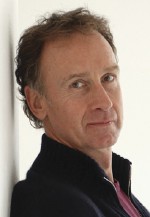
Producer, screenwriter, and bestselling author of THE HORSE WHISPERER, THE LOOP, and THE SMOKE JUMPER, Nicholas Evans says stories come from "a collision of ideas." He always carries a notebook and clips newspaper and magazine articles. "I store them away and make notes. Usually, these are no more than a fraction of an idea. And then something happens, and two or more of these things collide, and you suddenly realize that out of that collision there is a fusion that might sustain a novel."
John Feinstein
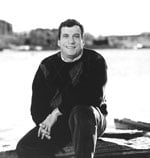
Readers and journalists value John Feinstein’s shrewd, accurate work as reporter, author, and critic as well as his passion for sports, and, fortunately for us, all of his titles have been audiobooks.
Willie Geist
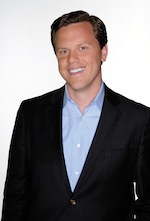
While Willie Geist is best known as the co-host of MSNBC’s “Morning Joe” and NBC’s “Today Show,” he started as a newspaper reporter. He wrote two books of humor before writing GOOD TALK, DAD with his father, the veteran newspaper columnist and Emmy-winning broadcaster Bill Geist. “It was by far the most meaningful book I’ve ever done--a chance for my father and I to sit down and think through all our favorite stories, get them down on paper, and sit with my mom and my wife and laugh through them.”
Anthony Horowitz
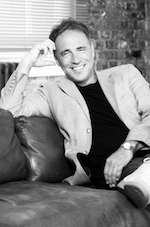
Some days, Anthony Horowitz feels more like a secretary than a writer, which is a tad surprising for the author of 49 novels and many screenplays. He should be the one in charge, yet, “Often I have to write with a pen because I can’t type fast enough to keep up with the speed my characters are talking. It’s as if I’m sitting on the side of the room with a notebook and a pen, furiously scribbling in shorthand the words I’m hearing.”
N.K. Jemisin
Hugo Award-winning novelist N.K. Jemisin goes to great lengths to “get it right” in her speculative-fiction stories, in which she explores a wide variety of Earth-bound subjects. She achieves her universe-building with finely drawn descriptions and fast-paced action. “I’m not doing anything different from what’s common in science fiction and fantasy. To make a story feel real, you have to have a certain amount of detail.” Fans of her audiobooks will find the same attention and craft in the recording of her latest book, THE OBELISK GATE. “I really think Robin Miles brings skill and professionalism to the production.”
Sebastian Junger
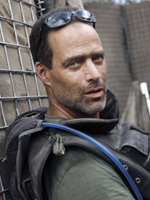
When the audio version of War was being produced, author Sebastian Junger decided to do the reading himself.
Cassandra King

Audiophiles, meet one of your own: the delightful Southern author Cassandra King. “I listen all the time while traveling, “ she says. “To me, it’s a way of enriching a book.”
Robert Kiyosaki
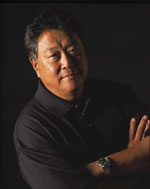
RICH DAD, POOR DAD was the first of a series of books and audios by Robert Kiyosaki that have revolutionized the way people think about money. Written in collaboration with CPA Sharon Lechter, they’ve helped people all over the world change from being employees to owning assets like businesses, real estate, intellectual property, and stocks. The New York Times bestseller for four years running was the outgrowth of a learning habit that really began when Kiyosaki returned from Vietnam in 1976. He bought a new car that had a brand-new gadget in it—a cassette player.
Michael Koryta
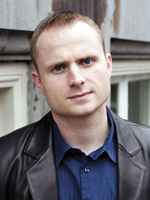
Suspense novelist Michael Koryta says there are times when audiobook narrators are able to interpret his work in ways that add layers he didn’t realize were in the story.
Grace Lin

Grace Lin is such an avid audiobook fan that, she says, “I don’t read physical books anymore.” Her latest favorite is Sophie Hannah’s THE ORPHAN CHOIR. Lin juggles parenting, writing, illustrating, and presenting. With audiobooks, she can listen and get something else accomplished. What’s more, she says, “On an airplane, I used to get kind of sick, but I can listen to a story, and I’m fine.”
John Lithgow
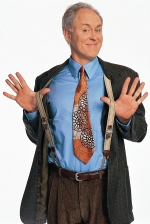
Such is John Lithgow’s belief in the power of the spoken word that when his elderly father was ill and in despair, Lithgow offered to read to him. His father chose a story by P.G. Wodehouse, and as Lithgow read, the miracle happened--his father began to laugh. It sounded, writes Lithgow in his new memoir, Drama: An Actor’s Education, “like the engine of an old car, starting up after years of disuse.” To Lithgow’s grateful ears, “It was the most wonderful sound I’d ever heard. And I’m convinced that it was sometime during the telling of that story that my father came back to life
Debbie Macomber
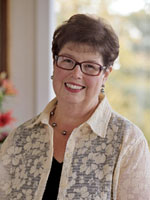
Debbie Macomber has written so many bestselling novels that the list of titles on her Web site scrolls for several pages. The number of audiobooks she’s heard may be almost as long.
Ed McBain
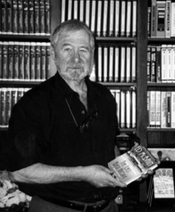
Ed McBain is a man who knows no rest. With more than 80 novels to his name—50 that have been adapted to audio-book—he continues to put in a full day’s work despite having recently completed his latest book, Candyland, co-written with another award-winning author, Evan Hunter. What makes this collaboration unique is that Ed McBain and Evan Hunter are the same person.
Brad Meltzer
New York Times bestselling writer Brad Meltzer wants listeners to know that every aspect of his new book, THE ZERO GAME, was thoroughly researched. He’s determined to engage every corner of the listener’s mind. "There is a hidden labyrinth below the Capitol. I was crawling underground on my hands and knees in a suit, with dust in my lungs. All those details, all those hidden places in the Capitol, are all real."
David Morrell
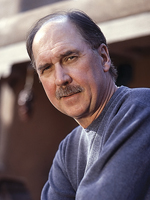
David Morrell is most known for his thriller FIRST BLOOD, which introduced the world to Rambo. “The thriller,” says Morrell “is a story whose pace increases as it progresses. Like other stories, thrillers engage the reader’s emotions, but with the thriller that emotion is usually fear. Traditional mysteries are based on a puzzle—a body is discovered and the detective conducts interviews and puts clues together to solve the murder—a whodunit story. The thriller is more of ‘how done it.’ Thriller writers include Lee Child, Steven Hunter, Douglas Preston, and Lincoln Child.”
James Patterson
James Patterson populates his books with terrorists, serial killers, and ruthless criminal masterminds. In contrast to the grisly content of his bestselling novels, Patterson turned out to be a pleasant, easygoing man when AudioFile caught up with him during his four-month, thirty-city tour. “I’m addicted to audiobooks, and every time I get in the car now, that’s all I do. I’m a huge, huge fan,” said Patterson, whose novels top the audiobook sales charts. “It’s a really exciting form. In particular for people who spend a lot of time driving or jogging, it’s the best. I converted about three years ago.” Up until that point, Patterson had led the hectic life of a city dweller. “I had no time. I didn’t want to think about audiobooks. Then I moved to the country. I spend a lot more time in the car. Now every time I get in the car, in goes the audiobook, even if it’s a ten-minute trip.”
James Patterson & Edoardo Ballerini
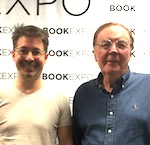
At this year’s BookExpo America conference, we had a chance to sit down with author James Patterson and narrator Edoardo Ballerini and talk audiobooks. This is an excerpt of our conversation; the full interview will be available as a podcast on our blog.
George Pelecanos
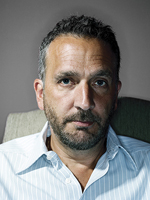
George Pelecanos knows the seamy streets of Washington, D.C., far from the government and legal offices of K Street, and he feels the rest of the world should know them as well.
Douglas Preston
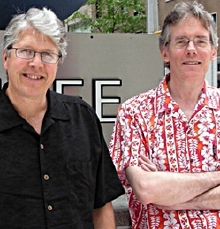
"Reading out loud is the purest and most ancient form of storytelling," says Douglas Preston, half of the Preston-Child team that has so far created nine novels. Their books cross the boundaries from thriller to horror to science fiction to mystery, creating a challenge for booksellers to pigeonhole them into a single genre. Co-author Lincoln Child explains, "In difficult times people seem to frequently turn away from real horrors to invented ones--horrors they can switch off when they feel like it. Our books aren't horror; they're techno-thrillers with a frisson of the supernatural."
Dan Rather
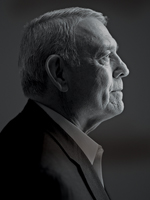
The voice is recognizable as a voice from our home or office, which for most of all our lives Dan Rather has been--a steady, trusted presence during the significant events of our time. Reached by telephone in his Dallas hotel room between crowded book signings, Rather sounds much like he sounds in Rather Outspoken: amiable, forthright, always a perfect gentleman.
Stacy Schiff
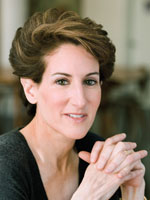
Pulitzer Prize-winning biographer Stacy Schiff admits she has “a thing” for lost worlds. “I’m nostalgic by nature--but then again, who writing history isn’t?” she asks. And among lost worlds, Schiff says, Cleopatra’s was the “most magnificent, sumptuous beyond even the ancient commentators’ abilities to describe.”
Anita Shreve
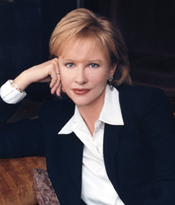
Author Anita Shreve told AudioFile that when she writes, she hears the language—the dialogue of her characters—in her mind. Whether it’s nineteenth-century voices and language, foreign accents or broken English, her muse communicates aurally, giving the author the rhythm and patterns of speech. The scenes and relationships she creates are vivid and uncontrived. The dialogue flows. This perhaps explains why Shreve’s books, and in particular FORTUNE’S ROCKS, set at the end of the nineteenth century in a New England seaside community, have such a finely tuned sense of time and place. They succeed as audiobooks because of these origins.
Bernie Siegel
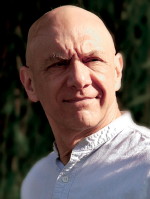
Bernie Siegel, M.D., practiced and taught surgery in Connecticut hospitals for over 30 years before he began writing books and recording audios for people with life-threatening illnesses. It was in the late 1970s that he began doing therapy groups for such patients, teaching them how to discover life and heal old personal wounds that might be making them more vulnerable to illness. “I was considered a total screwball, making people feel guilty if I asked them questions about their lives like ‘Why are you sick now?’ I’d get ‘Oh, you’re telling me it’s my fault?’”
Hyrum W. Smith
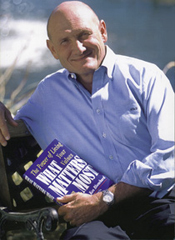
Though his is not a household name in audio publishing, Hyrum Smith has few peers when it comes to influencing people with the spoken word. The company he started 19 years ago, now called Franklin Covey, teaches time and life management to 60,000 people every month. His strong voice and enthusiasm for teaching have made bestsellers of his audios WHAT MATTERS MOST and THE 10 NATURAL LAWS OF SUCCESSFUL TIME AND LIFE MANAGEMENT. He is not as well known as his friend and colleague Stephen Covey (whose training and publishing empire his company acquired four years ago), but his success as an international speaker and leader of Franklin Covey’s 4,000 trainers makes his influence just as far reaching. He also developed the Franklin Day Planner, a goal-setting and time-management system used by 5 million people, which can now be integrated with a handheld computer, PC, and cell phone.
Nicholas Sparks
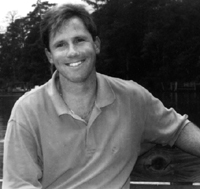
Most writers are driven by the almost compulsive need to communicate what touches them deeply in their own lives. Nicholas Sparks’s novels seem to express the universal desire for love. One of the best ways for Sparks to quite literally communicate his theme was to narrate the audio publication of his most recent novel, A WALK TO REMEMBER. It was an opportunity he almost didn’t get. Originally slated to record the nostalgic musings of the novel’s hero, Landon Carter, was “Ally McBeal” star Gil Bellows. When that fell through at the last minute, Time Warner called on Sparks to fill in. “It was amazing,” says Sparks. For him the thrill of performing A WALK TO REMEMBER was twofold.
Neal Stephenson
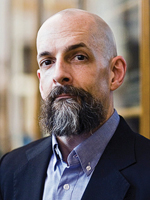
Neal Stephenson may not be your average New York Times #1 bestselling author. He’s staked a claim to having written some of the most intricately detailed, philosophically dense, and tightly plotted novels of the past 25 years.
Laini Taylor
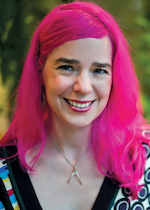
Bestselling author Laini Taylor always wanted to be a writer, but admits that early on struggles with perfectionism got in the way. Since she’s now written 10 books to wide acclaim, fans may be a bit surprised to discover that perfectionism still slows down her writing process. “I’m not a perfectionist in all things,” she reflects. “It’s not a conscious choice at all. When I’m writing, it’s difficult to find an actual flow--getting those words on the page and not worrying about whether everything is coming out perfect.” Perfectionism, she says, isn’t something she’s been able to conquer. That’s just how her brain works. “I feel like I have two speeds: I can either sit down and do a really fast free write, where it’s just an exercise, or I can work painfully slowly, sentence by sentence. What I’d really like is some middle speed.”
William P. Young
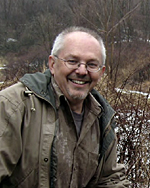
William Paul Young admits he hears voices. As he wrote THE SHACK, as a gift to his family, he heard the voices of Papa, Sarayu, and Jesus. When it came to creating the audiobook, he and his partners again heard voices. Veteran audiobook narrator Roger Mueller was not the first, but he was certainly the last. “Roger has an excellent ability to create multiple characters and differentiate the voices,” comments Young.
The latest audiobook reviews, right in your inbox.
Get our FREE Newsletter and discover a world of audiobooks.

AudioFile Newsletter
Let us recommend your next great audiobook!
No algorithms here!
We pick great audiobooks for you.
Sign up for our free newsletter with audiobook love from AudioFile editors.
If you are already with us, thank you! Just click X above.



